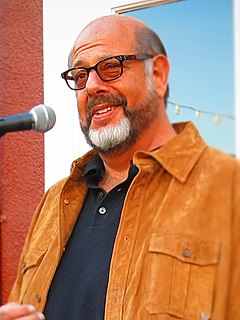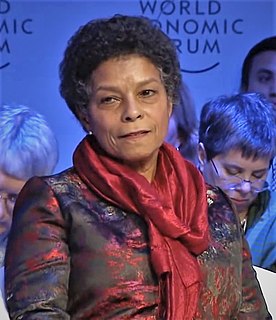A Quote by Kim Jong-un
All sectors of the national economy should make scrupulous arrangements for economic planning and guidance to boost production by tapping every possible reserve and potentiality, and work out in a scientific way the immediate plans and long-term strategies for stage-by-stage development and push ahead with them in a persistent manner.
Related Quotes
The most important thing that a company can do in the midst of this economic turmoil is to not lose sight of the long-term perspective. Don't confuse the short-term crises with the long-term trends. Amidst all of these short-term change are some fundamental structural transformations happening in the economy, and the best way to stay in business is to not allow the short-term distractions to cause you to ignore what is happening in the long term.
WHO has a country office in nearly every developing country, usually located close to the Ministry of Health. Staff in these offices need to do much more to help ministries of health strengthen their national health plans and strategies and then negotiate with development partners to support these priorities and follow these plans.
You cannot do a goal. Long-term planning and goal-setting must therefore be complemented by short-term planning. This kind of planning requires specifying activities. You can do an activity. Activities are steps along the way to a goal. Let's say you desire security. Putting $10.00 in the bank or talking to your stockbroker about your investment plans are activities that will move you toward your goal.
I got on stage and I went, "Oh wow. No stage fright." I couldn't do public speaking, and I couldn't play the piano in front of people, but I could act. I found that being on stage, I felt, "This is home." I felt an immediate right thing, and the exchange between the audience and the actors on stage was so fulfilling. I just went, "That is the conversation I want to have."
This work should commence with the conception of man, and should describe the nature of the womb, and how the child inhabits it, and in what stage it dwells there, and the manner of its quickening and feeding, and its growth, and what interval there is between one stage of growth and another, and what thing drives it forth from the body of the mother, and for what reason it sometimes emerges from the belly of its mother before the due time.
An interesting difference between new and experienced stage managers is that the new stage manager thinks of running the show as the most difficult and most demanding part of the job, whereas the experienced stage manager thinks of it as the most relaxing part. Perhaps the reason is that experienced stage managers have built up work habits that make then so thoroughly prepared for the production phase that they [can] sit back during performances to watch that preparation pay off.







































